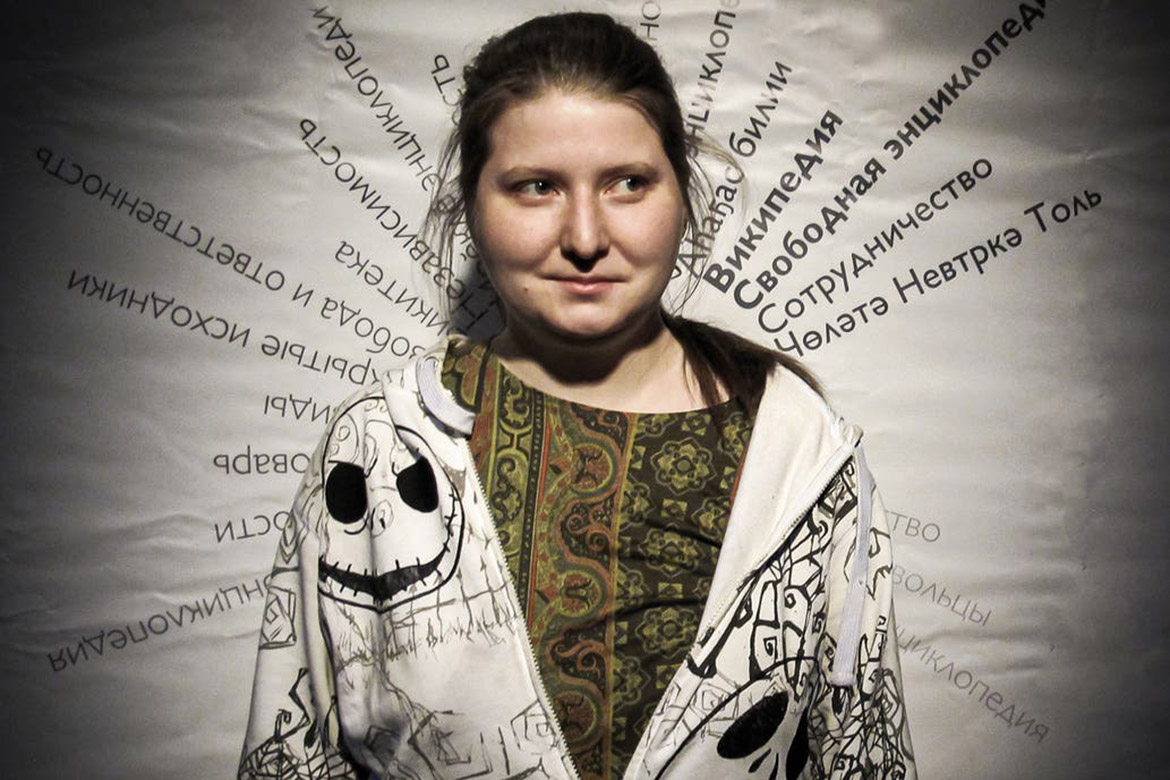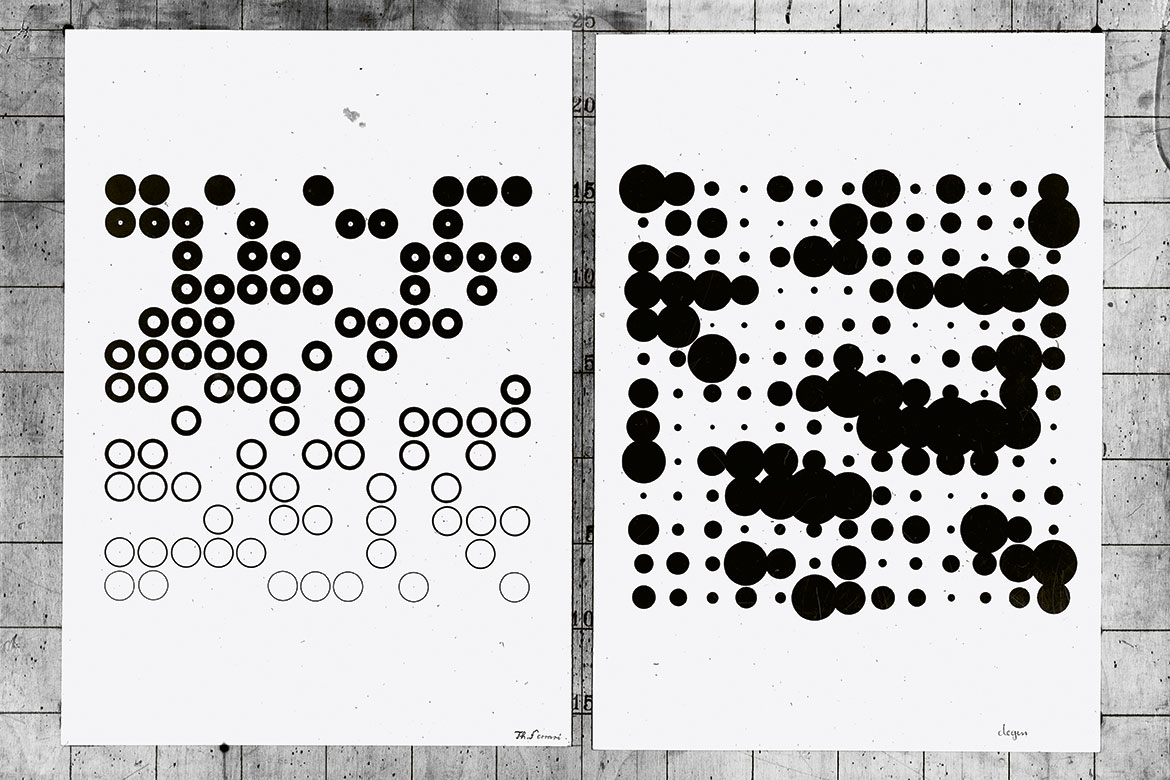A new copyright law is set to hinder open access
The draft revised Swiss copyright law lacks any guarantees on secondary publication rights. This could endanger efforts to ensure open access to research findings.

Many researchers pay little attention to copyright. They often hand it over to their publisher – with negative consequences for open access. | Image: Keystone/Gaetan Bally
Research results and studies funded by public monies should be accessible to a broad public, free of charge: that’s the whole point of so-called open access (OA). In Switzerland, the debate about this is now in full swing (see box ‘Sharing knowledge’).
As it happens, the Swiss copyright law is currently being brought up to date. The revision process should be complete by 2020 and also intends to take the interests of science and scholarship into account. A bill has been ready since last November. But even after much toing and froing, what it still lacks is a provision for secondary publication rights – in other words, the right to make a publication accessible online after the fact, free of charge. This is an important prerequisite for OA. In its detailed response to the proposed revisions, for example (available here, though only in German), the SNSF wrote that open access requires secondary publication rights to be enshrined in law.
This is because researchers today generally relinquish their authors’ rights to their publishers. If researchers afterwards upload their writings to the Internet through a research network or on their own homepage, they thereby infringe the copyright of their publishers and face legal action. They could be sued for an act of omission or for damages. The same applies to universities when they publish works in their own repositories. That’s why some people refrain from publishing on the Internet – and that cannot be in the interest of research or scholarship.
Daniel Hürlimann is an assistant professor at the University of St. Gallen. He has been campaigning hard for secondary publication rights, and took part in the legislative consultation process. He’s disappointed. Refusing to anchor secondary publication rights in the copyright law means endangering the national open-access strategy, he says. In his opinion, it’s the debonair attitude of the authors that leads to problems with secondary publication rights. “Many scholarly authors surrender their rights to their publisher without considering what it means”. This happens because authors don’t concern themselves with copyright, or because it doesn’t seem so important to them. In theory, it’s actually possible to draw up different contracts with their publishers. “But authors mostly just want to get published and quoted”, explains Hürlimann, “which is why contractual details quite naturally recede into the background for them”.
Anchoring secondary rights in the Swiss Code of Obligations
This is why Hürlimann suggests using the Swiss Code of Obligations to ensure that these rights always remain with the authors. That would allow them to upload their works onto a website. Hürlimann is convinced that the law should take scientific and scholarly concerns better into account, and that “secondary publication rights would help the national open-access strategy”. In the statement on the revision of copyright law that he has written with Florent Thouvenin (available here, only in German), he insists that the broadly conceived ban on data and text mining that is included in the copyright law should be complemented by ensuring secondary publication rights through a new article in the Code of Obligations. He says: “If public monies have helped to fund an article that is published in either a scholarly journal or a collection of essays, then it should be impossible for the author to surrender the right to make it publicly accessible, free of charge”. This could ensure that scholarly publications are available to interested parties and the general public, at no cost.
The independent Bernese lawyer and copyright expert Willi Egloff is of a different opinion. He’s no fan of secondary publication rights, and thinks it would make more sense to regulate the first publication properly: “People only discuss secondary publications because the initial publication has no impact”. The present situation is untenable, says Egloff: companies publish people’s works, and then demand money from anyone who wants to read them on the Internet. But leverage could be applied on this level to ensure that everyone has free access to research results on the Internet. Egloff firmly believes that publishers will have to change their business strategy. “A lot of lobbying will have to be undertaken to achieve this”. He doubts anyway whether the publishers generate much extra income with their current strategy. And the authors don’t get any royalties either, he says.
One text, several versions
But Egloff sees other possible problematic areas. If secondary publication rights were introduced, this could mean that two different versions of a text circulate at the same time: “This situation could have negative consequences when quoting scientific texts”, he says. Hürlimann disagrees: “You would use the same version for this as for the initial publication”. There is a provision in the bill for foreign companies to be bound by Swiss law when publishing works by Swiss authors. Egloff isn’t impressed – such a demand would be devoid of purpose, he says, and is in any case of no interest to foreign publishers. We must all understand that authors want to publish in renowned journals like Nature or Science because they aspire to a successful scientific career. If they’re successful in getting published, then they have to accept the publisher’s conditions. This also means accepting that the publishing contract is covered by foreign law. For Hürlimann, however, it’s irrelevant whether or not this matters to publishers abroad: “It would still allow us to put texts online that have been written by authors at Swiss universities”.
Egloff is of the confirmed opinion that the open-access strategy isn’t dependent on secondary publication rights. “The federal government should first ensure the accessibility of its own data and publications, and those of the organisations it funds”. Until that is done, Egloff suggests a pragmatic but controversial solution: scholarly texts should simply be published on the homepage of the authors’ institutes and on their own private websites. “I know of no case in which a publisher has intervened to prevent this”, he says.
Even if the Federal Council does not retain a provision for secondary publication rights in its draft revision of the copyright law, it still plans to keep an eye on the progress of discussions at a European level, “in order to explore any possible need for action”, as it says in its response to the legislative consultation. The bill would bring in safeguards that are important to science, such as prohibiting the use of copyright-protected works for purposes of data and text mining without the permission of the authors and without any remuneration. The Federal Parliament now has the next say on the revision of the law.
Michael Baumann is a freelance journalist and lives in Zurich.




